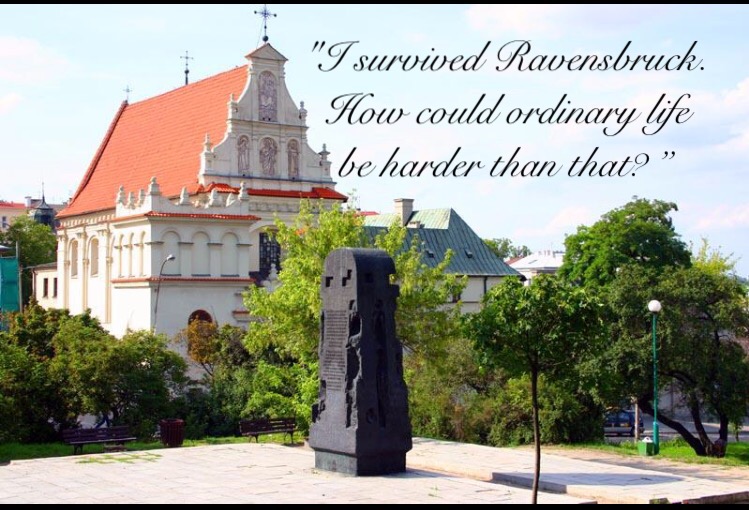Trei personaje. Trei caractere. Trei povești de viață. Trei medii sociale. Trei culturi. Trei femei. Trei victime ale celui de-al doilea război mondial.

”Când înflorește liliacul” este una dintre multele povești scrise despre victimele celui de-al doilea război mondial, structura acestei cărți însă este una diferită. Evenimentele sunt redate din perspectiva a trei femei, trăind și dezvăluind, fiecare în parte, drama proprie. Deși aflate în ipostaze complet diferite, niciuna dintre ele nu este scutită de ororile situației mondiale de la vremea respectivă, îndurând, fiecare în parte, fizic sau psihic, suferințe greu de imaginat.
Este o carte foarte bine documentată, uimind prin detalii ale evenimentelor desfășurate în acea perioadă, dar mai ales prin felul în care autoarea transmite atât de credibil emoțiile personajelor, dovadă a unui studiu intens și atent al supraviețuitorilor războiului.
Tristă, plină de durere, îmbogățită pe alocuri cu câte un licăr de speranță, cartea oferă cititorului o lecție de viață, pe care, din fericire, acesta nu este nevoit s-o simtă pe propria-i piele. O lecție despre empatie și etică, instinct de supraviețuire și sacrificiu, supliciu și negare, dezumanizare și regret, toate acestea însumând consecințele războiului.

O poveste dureros de greu de imaginat, care lasă în urmă o grămadă de semne de întrebare, de lucruri greu de înțeles, care însă nici nu-și pot găsi însemnătatea sau explicația la peste optzeci de ani distanță de la acea perioadă, într-o lume complet schimbată, cu o mentalitate mult diferită. O poveste plină de emoție și de sentimente, o poveste despre sacrificiu și alegeri, dar nu în ultimul rând despre dragoste. Dragoste față de familie, copii sau părinți, față de iubit sau soț sau dragoste față de meserie. Indiferent despre care dintre ele este vorba, toate aceste femei fac sacrificii și compromisuri din dragoste față de ceea ce prețuiesc sau iubesc mai mult. Rolul de judecător și critic față de alegerile celor prinși în vâltoarea evenimentelor este unul ușor din confortul canapelei noastre din living, însă este injust.
Să lăsăm condamnările pentru alții, ”bucurați-vă de această călătorie”, așa cum însăși autoarea ne îndeamnă, învățați din experiențele celor din poveste și fiți fericiți pentru perioada în care trăim.
Cu fiecare carte care îmi aduce în minte grelele încercări ale istoriei, mă bucur mai mult de ceea ce trăiesc, prețuiesc mai mult viața și mă rog ca cerul să fie mereu la fel de senin, soarele să strălucească în fiecare zi la fel de tare, iar inima să nu întâlnească nicicând durerea supremă sau umilința.

M-a emoționat cartea în multe rânduri, însă am selectat doar câteva dintre replicile personajelor. Pentru cei care ați citit romanul, acestea capătă mai multă însemnătate, pentru ceilalți însă sper să vă determine s-o citiți.
”Cântecele triste nu par triste când ai pe cineva care te iubește.”
”Gândul de a nu practica atâția ani medicina era ucigător.”
”Durerea e așa de ciudată: devine mai blândă odată cu exercițiul.”
”Supraviețuisem Ravensbruckului. Cum putea viața obișnuită să fie mai grea de atât?”
”La un moment dat, chiar și eu renunț.”
”Fiecare zi a fost o tortură.”
”… într-un colțișor al sufletului o să avem întotdeauna douăzeci de ani.”… Sper din suflet că așa va fi, Martha Hall Kelly.

Three characters. Three personalities. Three life stories. Three social environments. Three cultures. Three women. Three victims of the war.
“Lilac girls” is one of many stories written about the victims of World War II, but the structure of this book is different. The events are presented from the perspective of three women, each living and revealing their own drama. Although in completely different situations, none of them is exempt from the horrors of the world situation at that time, enduring, each one, physically or mentally suffering hard to imagine.
It is a very well documented book, astonishing by the details of the events that took place at that time, but especially by the way in which the author conveys so credibly the emotions of the characters, proof of an intense and careful study of the survivors of the war.
Sad, full of pain, enriched in places with glimmers of hope, the book offers the reader a life lesson, which, fortunately, he does not have to feel on his own skin, a lesson about empathy and ethics, survival instinct and sacrifice, torture and denial, dehumanization and regret, all summing up the consequences of war.
A painfully difficult story to imagine, which leaves behind a lot of question marks, things that are difficult to understand, but which cannot even find their meaning or explanation more than eighty years away from that period, in a completely changed world, with a very different mentality. A story full of emotion and feelings, a story about sacrifice and choice and, last but not least, about love. Love for family, children or parents, for boyfriend or husband or love for the job. No matter which one they are, all these women make sacrifices and compromises out of love for what they value most. The role of judge and critic of the choices of those caught in the whirlwind of events is an easy one from the comfort of our sofa in the living room, but it is unfair.
Let’s leave the condemnations to others, “enjoy this journey”, as the author herself urges us, learn from the experiences of those in the story and be happy for the period in which we live.
With each book that reminds me of the hardships of history, I enjoy more what I live, I value life more and I pray that the sky is always as clear, the sun shines just as bright every day and the heart never meet pain or humiliation.
I was moved by the book many times, but I selected only a few of the characters’ lines. For those who have read the novel, it acquires more meaning, but for the others, I hope it will make you read it.
“Sad songs don’t seem sad when you have someone who loves you.”
“The thought of not practicing medicine for so many years was deadly.”
“The pain is so weird: it gets softer with exercise.”
“I survived Ravensbruck. How could ordinary life be harder than that? ”
“At some point, even I give up.”
“Every day was torture.”
” … in a corner of the soul we will always be twenty years old.” … I sincerely hope so, Martha Hall Kelly.
